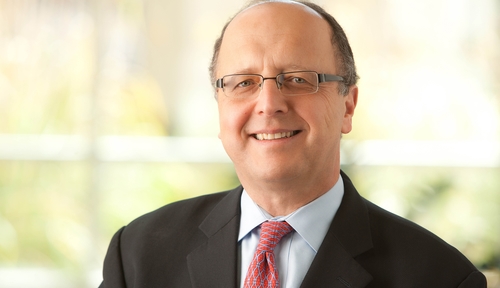The University of Nebraska Medical Center has been selected as one of 11 medical centers in the country participating in a novel study using adult stem cells as a treatment for stroke patients.
The treatment – called MultiStem – uses a collection of stem cells derived from a bone marrow aspirate taken from a single adult donor. Using special technology, the cells have been multiplied to allow for easy availability and immediate usage.
Pierre Fayad, M.D., the Reynolds Professor of the UNMC Department of Neurological Sciences and director of The Nebraska Medical Center Stroke Center, will serve as principal investigator for UNMC’s portion of the study.
“Stroke is a leading cause of death and disability in adults with very limited treatment options,” Dr. Fayad said. “We’re excited to be selected as one of the centers for this study. It will allow us to offer our patients a completely new approach to treating stroke.”
The study, which is seeking a total of 140 stroke patients, is being conducted nationwide through leading stroke centers across the country. In addition to UNMC, other participating centers include Case Western University in Cleveland, Methodist Hospital at Houston, the University of South Carolina in Columbia, Medical College of Georgia in Augusta, and Oregon Health & Science University in Portland.
UNMC will be responsible for enrolling between 6-10 patients over approximately the next 18 months, Dr. Fayad said.
The study is a double blind, placebo controlled Phase II clinical trial. The purpose of the Phase II study will be to determine the safety and tolerability of MultiStem. In tests on rodents that have undergone an experimentally induced stroke, one treatment of MultiStem produced significant improvement in motor skills and reduced inflammatory damage in the brain without causing any serious side effects.
“Stroke causes inflammation in the brain,” Dr. Fayad said. “If you can block the inflammation, you may improve the patient outcome. This is a novel way of modifying the body’s response to inflammation when someone has a stroke, without taking apparently significant risks. The cells have a significant effect on the immune system’s reactions that are not attainable with existing pharmaceuticals.”
When someone has a stroke, the person’s spleen shrinks as inflammatory cells migrate to the site of the stroke. In rodents treated with MultiStem following a stroke, the spleen size remained normal and increased levels of anti-inflammatory cytokines were found in the blood.
The spleen is an organ located below the rib cage on the left side of the abdomen. The purpose of the spleen is to filter and store blood cells. It can also produce lymphocytes, which are white blood cells that can produce antibodies to protect the body against foreign invaders or infections.
Patients eligible for the study must have:
- Incurred a significant ischemic stroke (caused by a blockage in blood flow to the brain) within 36 hours before receiving MultiStem treatment;
- Deficits resulting from the stroke that are not at the extremes of severity and measurable through magnetic resonance imaging (MRI).
Participants meeting these criteria will be given either a placebo or MultiStem. They will not know what they are given, neither will the treating physician. The treatment will be infused intravenously over the course of a couple hours.
Stroke is the fourth leading cause of death and the leading cause of disability in adults. It’s estimated that 15 million people worldwide suffer a stroke each year, resulting in 5.5 million deaths and 5 million individuals who are permanently disabled.
Currently, the only FDA-approved drug available for ischemic stroke is the clot-buster, tPA, which must be administered through the veins within four and a half hours of the onset of the stroke. Because of this limited window of time, it’s estimated that less than 5 percent of ischemic stroke victims are generally treated with tPA.
Even if a person is treated with tPA, Dr. Fayad said they could still be eligible to participate in the MultiStem clinical trial.
He said stroke patients being treated at The Nebraska Medical Center will be evaluated to make sure they meet the study criteria. If they do, they will then be given the opportunity to participate in the study. Participation is completely voluntary.
Study participants will incur no cost and will be followed for one year. They will receive another MRI 30 days after their stroke.
For more information on clinical trials at UNMC, contact the Research Subject Advocate Office at 402-559-6941.
Through world-class research and patient care, UNMC generates breakthroughs that make life better for people throughout Nebraska and beyond. Its education programs train more health professionals than any other institution in the state. Learn more at unmc.edu.
